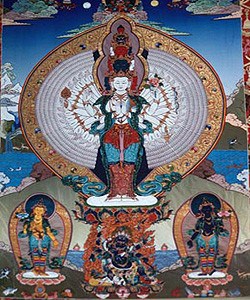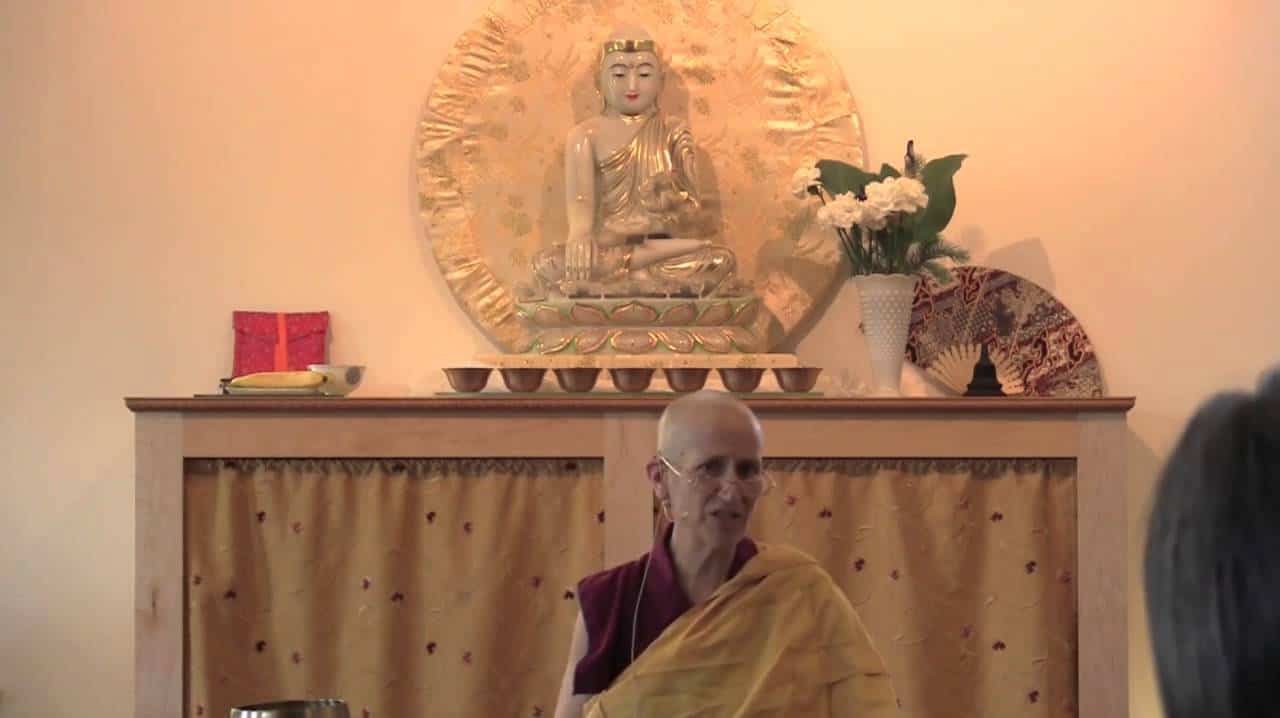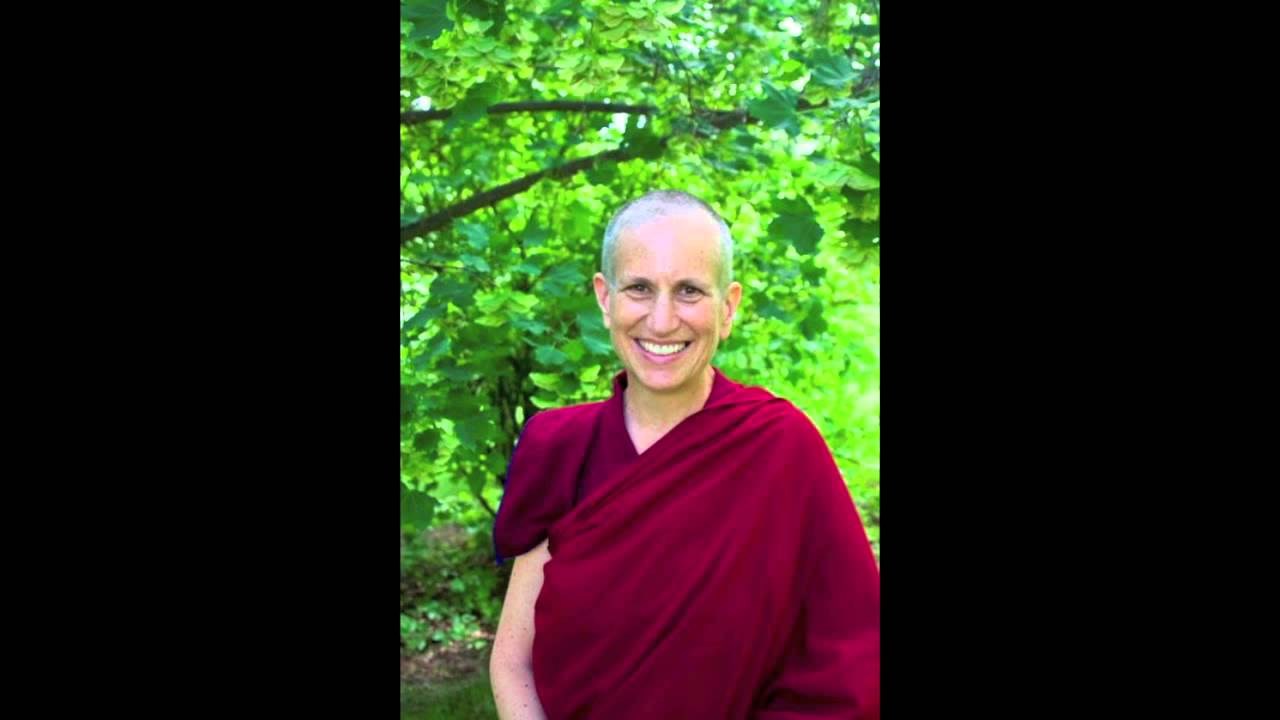Introduction to Nyung Ne
Introduction to Nyung Ne

The Nyung Ne retreat is a special practice of Chenrezig, the Buddha of Compassion, begun by the nun Gelong-ma Palmo several centuries ago. This retreat, which lasts two full days and the morning of the third day, is popular among Tibetan Buddhists because of its ability to aid practitioners in purifying their minds, creating positive potential, and developing compassion. This practice is especially good to do when we feel stuck in our lives or in our practice, or when we find ourselves continually caught in unproductive physical, mental, or emotional patterns. It can also be effective in curing illness.
The fast that we are to abide in is to abstain from physical, verbal, and mental destructive actions and to abstain from ignorant, angry, and clinging attitudes. To help in the process, the eight Mahayana precepts are taken for two days. These are to abandon:
- killing
- stealing
- sexual activity
- lying
- intoxicants
- sitting on high or expensive beds or seats
- singing, dancing, or playing music; wearing perfumes, ornaments, or cosmetics
- eating at improper times
The first day we take one vegetarian meal before noon (no meat, onions, garlic, radishes or eggs). Light beverages can be taken throughout the day. (No juice with pulp. A little milk may be added to tea or coffee, but a glass of milk may not be taken.). The second day, we do not eat, drink, or speak (this means no water, medicine, etc.). The fast is broken the morning of the third day. Three meditation sessions are done on the first two days, and one shorter session the morning of the third day. A tsog offering ceremony is done at the conclusion of the retreat in thanksgiving. There is also a discussion group on the first day and a taped talk on the second.
This is a tantric practice, which generally requires the Chenrezig empowerment. However, in the Tibetan community, many people without the empowerment happily participate in the retreat. Each meditation session involves visualization, recitation of verses, prayers, and mantra. There are also two periods of prostrations to Chenrezig, the Buddhas, and bodhisattvas.
Venerable Thubten Chodron
Venerable Chodron emphasizes the practical application of Buddha’s teachings in our daily lives and is especially skilled at explaining them in ways easily understood and practiced by Westerners. She is well known for her warm, humorous, and lucid teachings. She was ordained as a Buddhist nun in 1977 by Kyabje Ling Rinpoche in Dharamsala, India, and in 1986 she received bhikshuni (full) ordination in Taiwan. Read her full bio.


